Spring is one of the most anticipated seasons for gardeners. The promise of vibrant tulips, daffodils, hyacinths, and other bulb flowers emerging from the soil fills every garden with excitement. However, for many gardeners, this joy is often cut short by one persistent problem—squirrels. These agile, curious creatures are notorious for digging up bulbs, leaving holes, uprooted plants, and frustration in their wake.
While some gardeners may consider chemical repellents or traps, there are natural, safe, and effective ways to protect your bulbs without harming wildlife. This guide explores practical strategies for preventing squirrels from digging up bulbs, including planting techniques, deterrents, and garden planning tips.
Understanding Squirrel Behavior
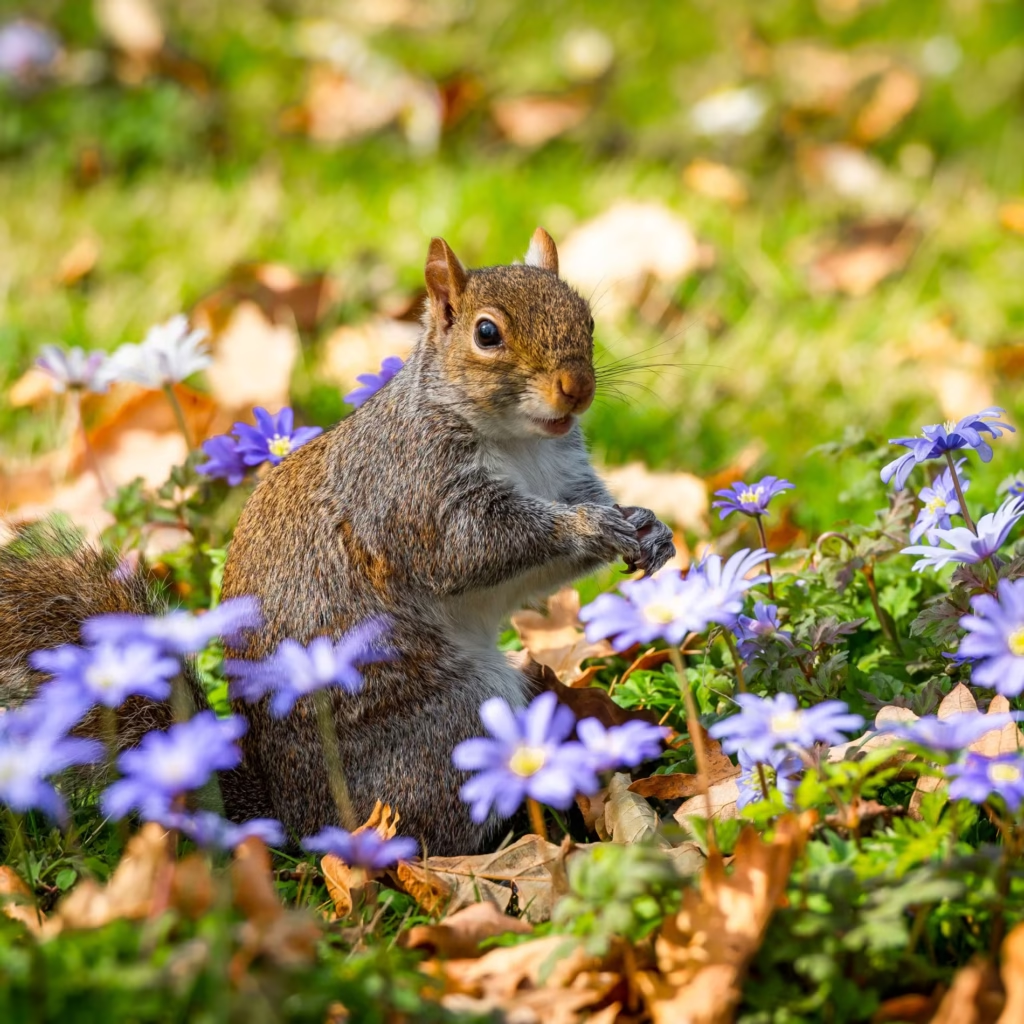
Squirrels are clever foragers with a strong natural instinct to bury and retrieve food, especially nuts and seeds. Bulbs are particularly appealing to them because:
- Shape and texture: Many bulbs resemble nuts or tubers, triggering a squirrel’s digging instinct.
- Location: Bulbs planted near the surface or in loose soil are easier for squirrels to uncover.
- Timing: Squirrels are active during spring and fall, coinciding with bulb planting and growth.
By understanding their behavior, you can implement preventative strategies that reduce the likelihood of disturbance.
Pro Tip: Early intervention—before squirrels discover your bulbs—is more effective than trying to deter them after the damage begins.
1. Plant Bulbs at the Correct Depth
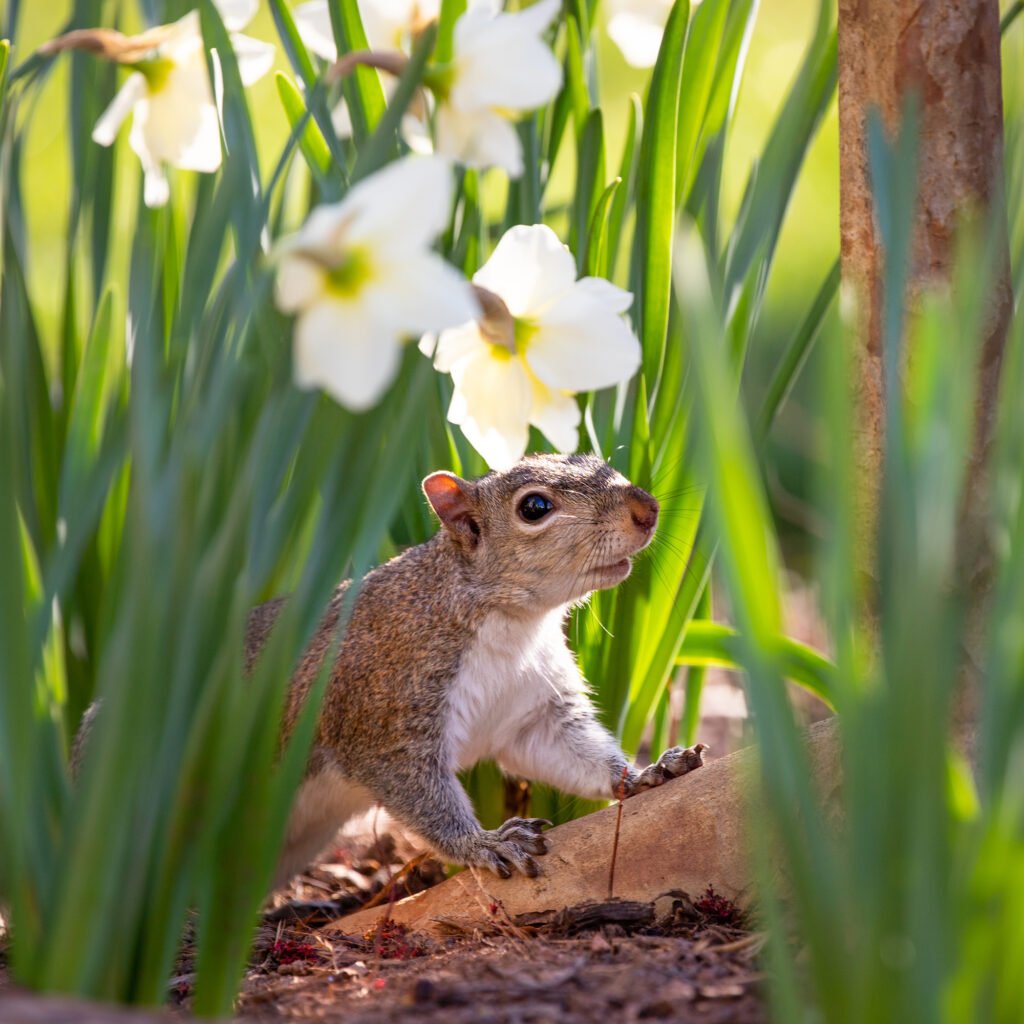
One of the simplest ways to protect bulbs is planting them deeper than usual.
Guidelines for Depth
- Tulips and daffodils: Plant 6–8 inches deep.
- Hyacinths: Plant 6 inches deep.
- Alliums: Plant 4–6 inches deep.
Deeper planting makes it harder for squirrels to dig them up, while still allowing the bulbs to sprout and bloom.
Pro Tip: Place a layer of coarse sand or gravel at the bottom of the hole. This makes digging less appealing to squirrels while aiding drainage.
2. Use Physical Barriers
Physical barriers are a highly effective, non-toxic way to protect bulbs:
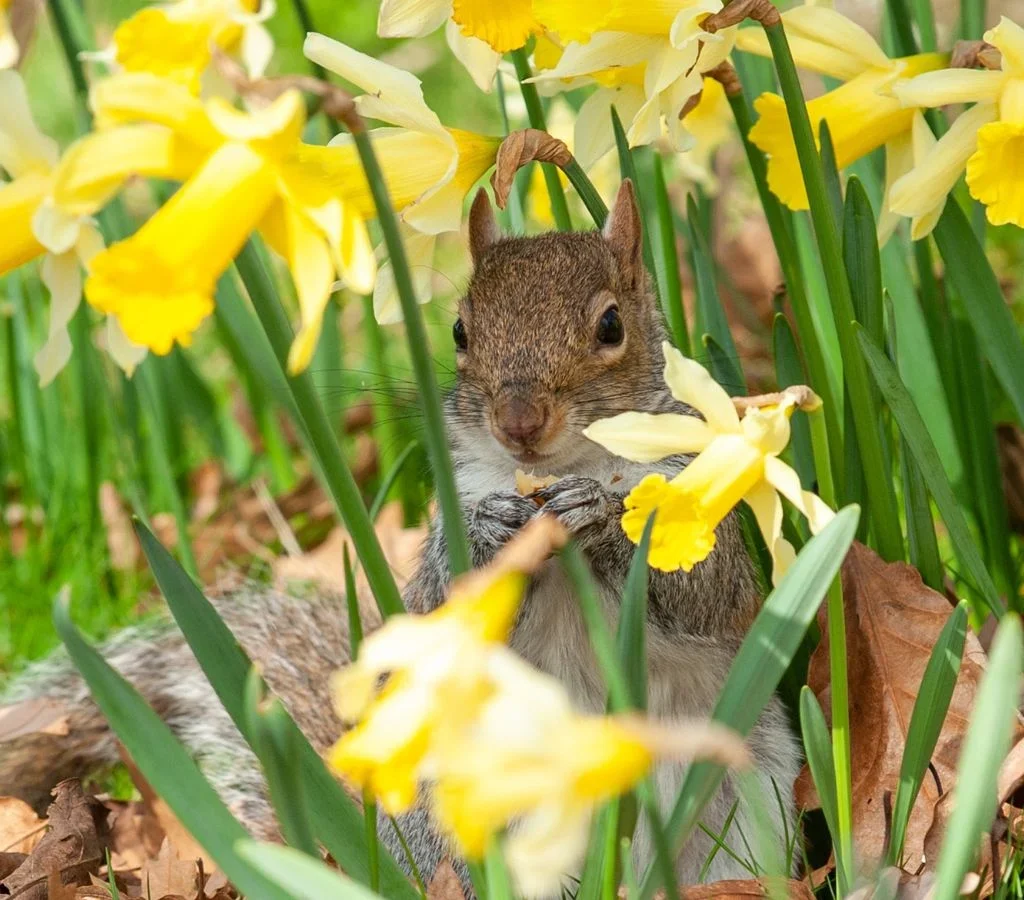
Mesh or Chicken Wire
- Method: Lay a layer of chicken wire, hardware cloth, or garden mesh over the soil after planting bulbs.
- Benefit: Squirrels can’t dig through the mesh to reach the bulbs.
- Tip: Leave small holes or gaps so water and air can reach the soil.
Bulb Cages or Wire Baskets
- Method: Place bulbs in individual wire cages or baskets before planting.
- Benefit: Protects bulbs from being dug up while allowing normal growth.
- Tip: Choose cages with openings large enough for roots to grow but small enough to deter squirrels.
Mulch and Decorative Rocks
- Method: Apply a thick layer of mulch, pine cones, or decorative rocks over bulb beds.
- Benefit: Makes the soil surface less appealing and more challenging to dig.
Pro Tip: Combining mesh and mulch provides double protection and keeps your garden looking attractive.
3. Plant Squirrel-Resistant Bulbs
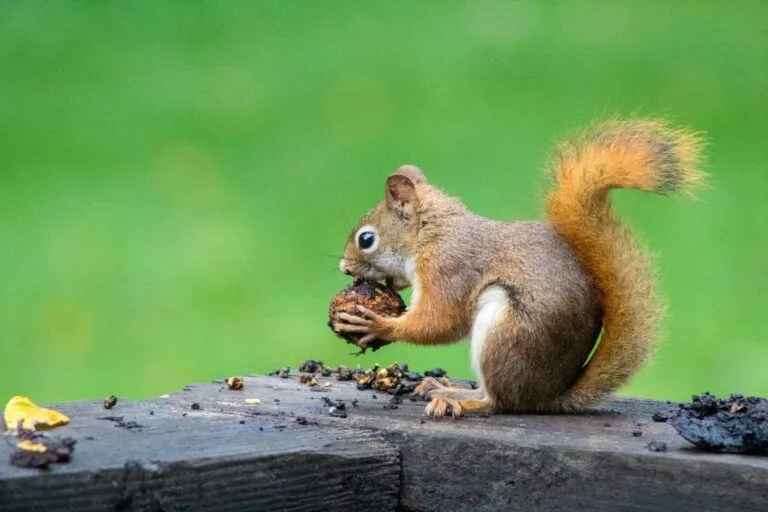
Some bulbs are naturally less appealing to squirrels, making them a strategic choice:
- Daffodils (Narcissus): Toxic to squirrels; they generally avoid them.
- Alliums: Onion-like bulbs with strong odors repel squirrels.
- Fritillaria: Bitter taste discourages digging.
- Hyacinths: Their fragrance deters squirrels in many cases.
Pro Tip: Mix these squirrel-resistant bulbs with more attractive varieties to reduce overall damage.
4. Use Natural Repellents
Natural scents can deter squirrels from approaching bulb beds:
Common Squirrel Repellents
- Hot pepper or chili powder: Sprinkle lightly over soil or mix with water to create a spray.
- Garlic cloves: Bury a few cloves near bulbs; the scent repels squirrels.
- Coffee grounds: Spread used grounds over soil; adds a slight deterrent and enriches the soil.
- Human hair or predator fur: Scatter around beds; squirrels detect potential danger and avoid the area.
Application Tips
- Reapply after rain or watering.
- Rotate repellents to prevent squirrels from becoming accustomed to one scent.
Pro Tip: Avoid overusing hot pepper sprays directly on flowers, as it can irritate humans and pets.
5. Distract Squirrels With Alternative Food Sources
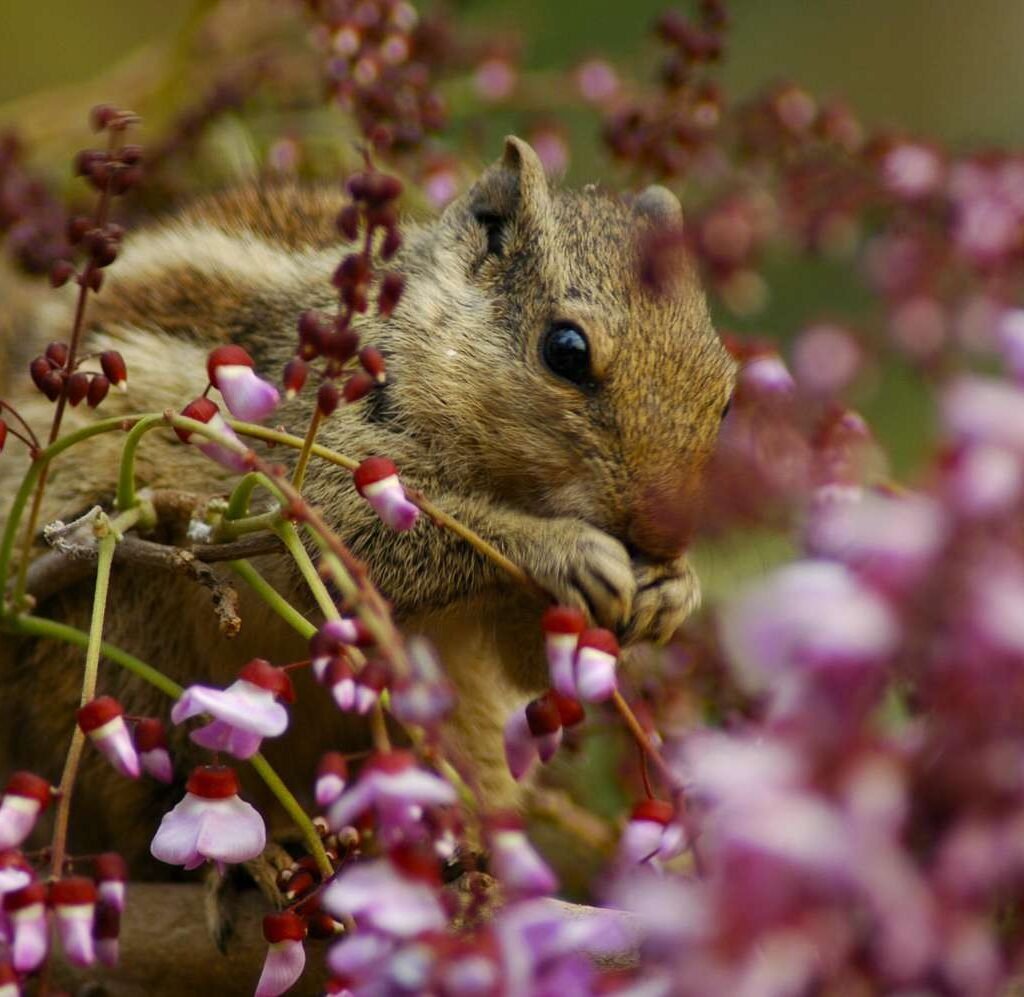
Sometimes the best strategy is diversion. Offer squirrels an alternative food source to keep them away from your bulbs:
- Place a squirrel feeder stocked with sunflower seeds, corn, or peanuts away from your flower beds.
- Scatter shelled nuts in a separate area to lure them away.
- Plant squirrels’ favorite plants like acorns or berry bushes in a corner of the garden.
Pro Tip: By satisfying their foraging instincts elsewhere, squirrels are less likely to dig in your prized bulb beds.
6. Garden Planning and Layout
Strategic garden design can minimize squirrel access to bulbs:
- Container planting: Grow bulbs in deep pots or planters placed on raised stands. Squirrels are less likely to reach elevated containers.
- Edge barriers: Surround bulb beds with low fences, edging, or thorny shrubs.
- Cluster planting: Plant bulbs densely; squirrels may be discouraged by the difficulty of digging through a packed bed.
Pro Tip: Raised beds with wire mesh bottoms provide excellent protection while improving soil drainage and accessibility.
7. Timing and Seasonal Protection
Squirrels are most active in early spring and fall. Timing your planting and using seasonal deterrents can reduce damage:
- Plant bulbs in late fall before squirrels become highly active in search of food.
- Use protective covers during the first few weeks after planting.
- Monitor daily: Check soil for early signs of digging and intervene promptly.
Pro Tip: Combining timing strategies with deterrents creates a multi-layered defense system that dramatically improves success rates.
Benefits of Natural Squirrel Control
- Eco-friendly: Protects wildlife without harming squirrels.
- Sustainable: Reduces dependency on chemical deterrents or poisons.
- Aesthetic: Preserves beautiful bulb blooms and keeps gardens looking vibrant.
- Educational: Encourages learning about wildlife behavior and ecological balance.
Pro Tip: A natural, preventative approach often requires less maintenance in the long term than reactive chemical treatments.
Final Thoughts
Squirrels are persistent, clever, and surprisingly agile, but with the right strategies, gardeners can protect their bulbs naturally. Key methods include:
- Planting bulbs deep enough and using protective mesh or cages.
- Selecting squirrel-resistant varieties.
- Applying natural repellents like garlic, hot pepper, and coffee grounds.
- Providing alternative food sources and designing strategically laid-out gardens.
- Monitoring and timing planting to stay one step ahead of squirrels.
By combining these approaches, you can enjoy spring bulb blooms without the frustration of dug-up flowers, create a wildlife-friendly garden, and maintain beautiful, healthy flower beds year after year.
Pro Tip: Persistence is key. Even if squirrels manage to dig a few bulbs early on, a consistent, multi-layered approach will significantly reduce damage over time and ensure your garden remains a vibrant spring paradise.
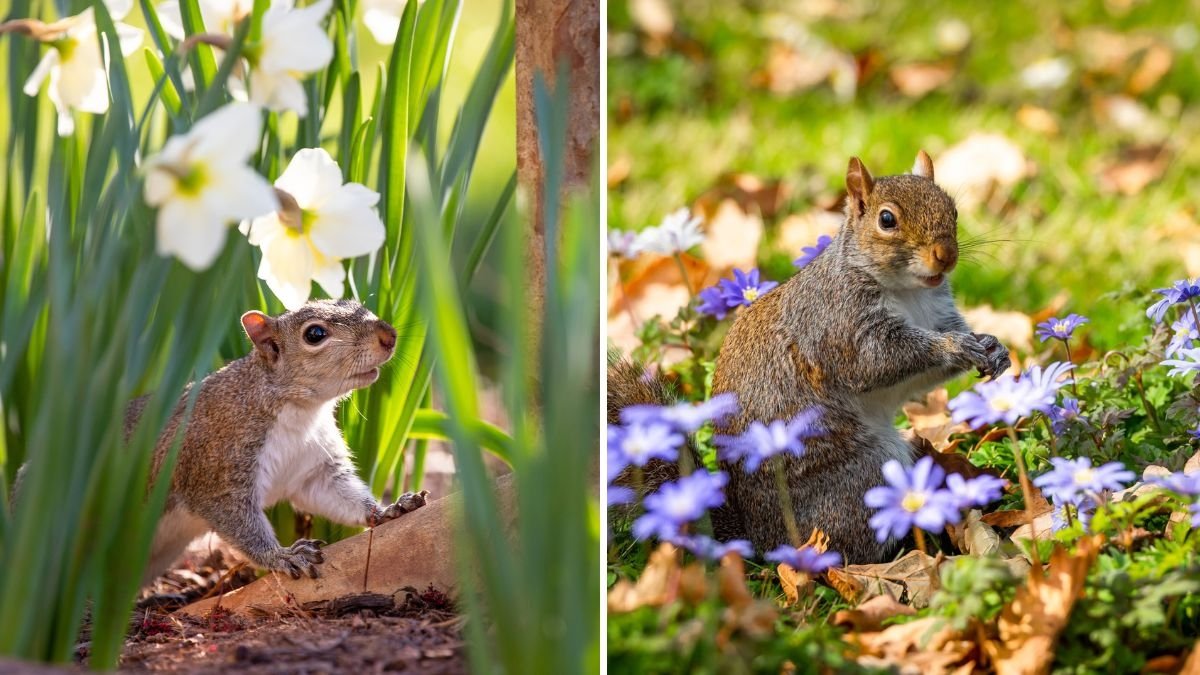
Leave A Comment